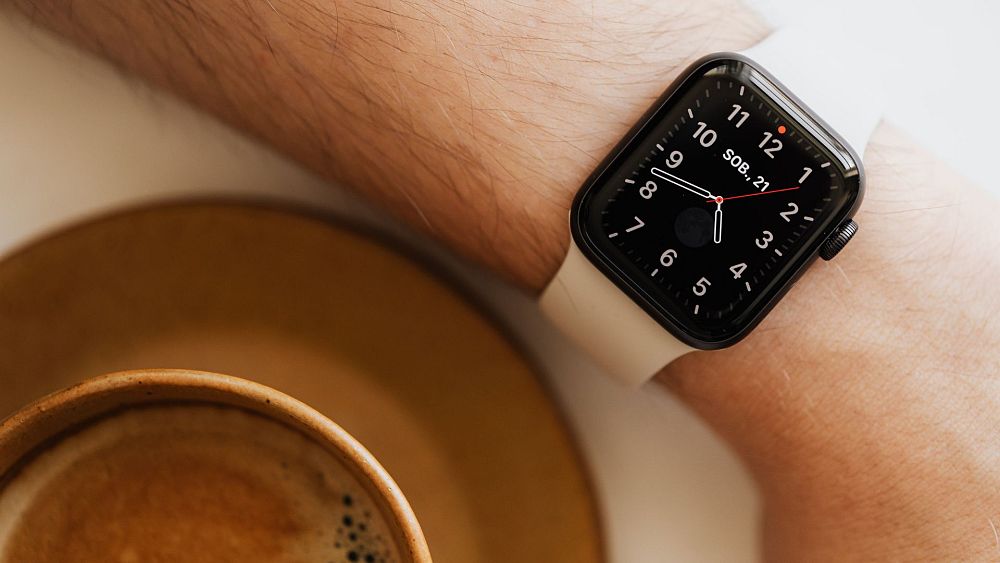
Researchers have shown how smartwatches can provide data that allows AI to detect Parkinson’s disease as much as seven years before symptoms show.
Wearing a smartwatch could identify Parkinson’s as much as seven years before the main symptoms of the disease start to show, new research suggests.
Detecting and diagnosing Parkinson’s early can mean more effective treatment options - and data gathered by a smartwatch over just a 7-day period could point to signs of the disease.
In the study, scientists analysed participants’ speed of movement. By using a machine learning algorithm, an artificial intelligence (AI) programme was able to accurately predict who would go on to develop the disease.
Conducted by the UK Dementia Research Institute (UKDRI) and the Neuroscience and Mental Health Innovation Institute (NMHII) at Cardiff University, the researchers say this method could be used as a new screening tool for the illness.
Parkinson’s is a progressive neurological condition where there isn’t enough dopamine in the brain. This deficiency causes problems in the brain which worsen over time.
According to the charity Parkinson’s UK, it isn’t yet clear why people develop Parkinson’s, but researchers think it could be a combination of age, genetics, and environmental factors.
The main symptoms are involuntary shaking of parts of the body, slow movement, and stiff and inflexible muscles, but there can also be psychological symptoms such as depression, loss of smell, and memory issues.
The majority of people with Parkinson’s start to show symptoms after the age of 50, but some experience symptoms in their 40s.
By the time the hallmark symptoms start to show, more than half of the cells in the affected part of the brain may already have died, making a form of earlier detection in high demand.
'Easily accessible and low-cost'
"Smartwatch data is easily accessible and low-cost," said study leader Dr Cynthia Sandor, Emerging Leader at the UK DRI.
"As of 2020, around 30 per cent of the UK population wear smartwatches. By using this type of data, we would potentially be able to identify individuals in the very early stages of Parkinson's disease within the general population".
The researchers used data from 103,712 UK Biobank participants, who all wore a medical-grade smartwatch for a 7-day period between 2013-2016.
They measured the average acceleration of the person continuously over a week-long period.
By comparing the data from a subset of participants who had already been diagnosed with Parkinson’s disease to another group who received a diagnosis up to seven years after the smartwatch data was collected, they could use AI to identify participants who would later go on to develop the disease.
The AI was able to distinguish these participants from the control participants in the study, and the researchers went on to show it could be used to identify those at risk in the general population.
They found that this was more accurate than any other risk factor or other recognised early sign of the disease in predicting whether someone would develop Parkinson’s. The model was also able to predict the time it would take to diagnosis.
"We have shown here that a single week of data captured can predict events up to seven years in the future," said Sandor.
"With these results, we could develop a valuable screening tool to aid in the early detection of Parkinson’s.
"This has implications both for research, in improving recruitment into clinical trials, and in clinical practice, in allowing patients to access treatments at an earlier stage, in future when such treatments become available".
The researchers said a limitation of their study was the lack of replication using another data source, as they didn’t have access to another comparable data set.
The findings were published in the journal Nature Medicine.
AI could interpret your smartwatch data to detect Parkinson's up to 7 years earlier - Euronews
Read More

No comments:
Post a Comment